2021 Diversity Celebration
Apart but Together
Virtual “Celebrating Diversity” Dinner Honors Leaders and Initiatives Supporting UMSOM Diversity
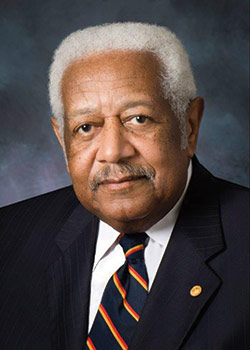 Even within a virtual format, the collective feelings of commitment shared by all in attendance at this year's 14th annual “Celebrating Diversity" Dinner were palpable. The annual event, held on February 20, 2021 honors the School’s diversity efforts by recognizing those who have helped increase diversity in the field of medicine, while raising support for an endowed scholarship in the name of Dean Emeritus Donald E. Wilson, MD, MACP, AGAF.
Even within a virtual format, the collective feelings of commitment shared by all in attendance at this year's 14th annual “Celebrating Diversity" Dinner were palpable. The annual event, held on February 20, 2021 honors the School’s diversity efforts by recognizing those who have helped increase diversity in the field of medicine, while raising support for an endowed scholarship in the name of Dean Emeritus Donald E. Wilson, MD, MACP, AGAF.
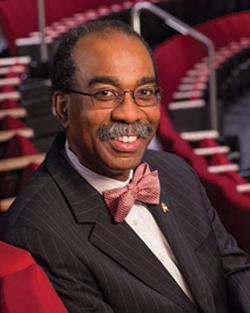 “The School of Medicine recognizes and reinforces the positive impact that takes place in a healthy, robust, and diverse academic environment and are strongly committed to the recruitment and retention of talented, ethnically diverse faculty, staff, trainees, and students,” said UMSOM Dean E. Albert Reece, MD, PhD, MBA. “A robust scholarship program is critical to creating and maintaining a diverse, dynamic, and scholarly academic community.”
“The School of Medicine recognizes and reinforces the positive impact that takes place in a healthy, robust, and diverse academic environment and are strongly committed to the recruitment and retention of talented, ethnically diverse faculty, staff, trainees, and students,” said UMSOM Dean E. Albert Reece, MD, PhD, MBA. “A robust scholarship program is critical to creating and maintaining a diverse, dynamic, and scholarly academic community.”
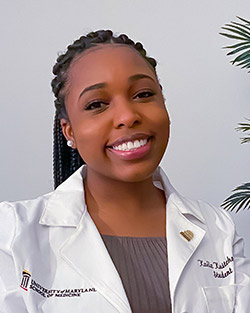 Dean Emeritus Donald E. Wilson Scholarship recipient Kaéla Kuitchoua, Class of 2024, was a featured speaker at this year’s dinner. Kaéla, who follows in the footsteps of inaugural scholarship recipient Jasmine Blake, MD ’20, is pursuing interests in neuroscience, behavioral biology, and genetics. She graduated from Emory University in 2018, where completed a Bachelor of Science degree in Neuroscience and Behavioral Biology. Prior to medical school, Kaéla spent two years working for the NIMH’s Clinical and Translational Neuroscience Branch through the NIH Postbaccalaureate Intramural Research Training Award Program.
Dean Emeritus Donald E. Wilson Scholarship recipient Kaéla Kuitchoua, Class of 2024, was a featured speaker at this year’s dinner. Kaéla, who follows in the footsteps of inaugural scholarship recipient Jasmine Blake, MD ’20, is pursuing interests in neuroscience, behavioral biology, and genetics. She graduated from Emory University in 2018, where completed a Bachelor of Science degree in Neuroscience and Behavioral Biology. Prior to medical school, Kaéla spent two years working for the NIMH’s Clinical and Translational Neuroscience Branch through the NIH Postbaccalaureate Intramural Research Training Award Program.
She currently is part of the Combined Accelerated Program in Psychiatry (CAPP) elective track, a member of UMSOM’s Second Look Day Committee, and was elected to serve as a co-vice president of UMSOM’s Student National Medical Association chapter for the 2021-2022 academic year. Kaéla notes that she is looking forward to supporting underrepresented minority students and serving underserved communities as a medical student and throughout her medical career.
“Being honored with the Donald E. Wilson Scholarship for wanting to practice medicine with underserved communities has motivated me throughout my first year at medical school,” she said. “It is a constant reminder that I want my medical career to be about advancing and serving communities that are often-times neglected. Diversity programs remind students like me that we are not alone on this journey, and that there is a whole community of people who want us to succeed.”
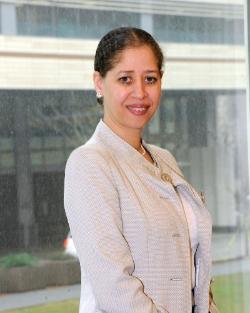 Other honorees of the evening included Diane Marie St. George, PhD, Associate Professor of Epidemiology & Public Health, who received the ninth annual Dean’s Faculty Award for Diversity and Inclusion. The award recognizes a School of Medicine faculty member whose work advancing diversity and inclusion has been extraordinary. Dr. St. George has made outstanding contributions to advance diversity and inclusion over the past 20 years. She advocates strongly for LGBT individuals, women, people of color, and indigenous individuals, while focusing on bias can cause many medical school candidates to be overlooked in the admission process.
Other honorees of the evening included Diane Marie St. George, PhD, Associate Professor of Epidemiology & Public Health, who received the ninth annual Dean’s Faculty Award for Diversity and Inclusion. The award recognizes a School of Medicine faculty member whose work advancing diversity and inclusion has been extraordinary. Dr. St. George has made outstanding contributions to advance diversity and inclusion over the past 20 years. She advocates strongly for LGBT individuals, women, people of color, and indigenous individuals, while focusing on bias can cause many medical school candidates to be overlooked in the admission process.
“While we celebrate tonight, the work is never done,” said Dr. St. George. “We need to re-commit ourselves to eliminating barriers in equity and inclusion around the U.S., and in the communities where we live and work.”
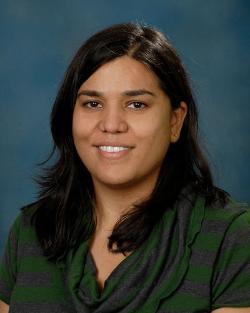 Another Dean’s Faculty Award was presented to Mary Kay Lobo, PhD, professor of Anatomy and Neurobiology. In her remarks, Dr. Lobo stated, “So many have been involved in the efforts to address and improve diversity and inclusion, while combating bias. It’s been energizing to see our students engaging in these efforts as well.”
Another Dean’s Faculty Award was presented to Mary Kay Lobo, PhD, professor of Anatomy and Neurobiology. In her remarks, Dr. Lobo stated, “So many have been involved in the efforts to address and improve diversity and inclusion, while combating bias. It’s been energizing to see our students engaging in these efforts as well.”
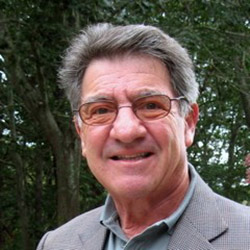 The Dean’s Alumni Award to Robert Greifinger, MD ‘67, a correctional health care policy and quality management consultant. While a medical student at the UMSOM, he and a group of fellow students, along with basic science faculty members, developed a cooperative summer program with Morgan State University to introduce minority students to the possibility of attending medical school.
The Dean’s Alumni Award to Robert Greifinger, MD ‘67, a correctional health care policy and quality management consultant. While a medical student at the UMSOM, he and a group of fellow students, along with basic science faculty members, developed a cooperative summer program with Morgan State University to introduce minority students to the possibility of attending medical school.
“I am proud of the role we played more than 50 years ago in nudging the School of Medicine towards greater diversity, a trajectory that continues to blossom today,” said Dr. Greifinger.
